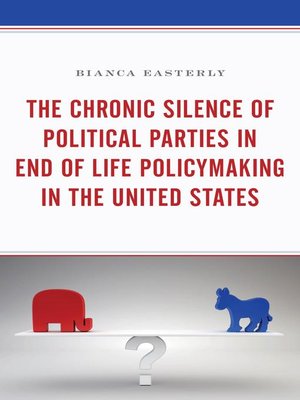The Chronic Silence of Political Parties in End of Life Policymaking in the United States
ebook ∣ Modern Southeast Asia
By Bianca Easterly

Sign up to save your library
With an OverDrive account, you can save your favorite libraries for at-a-glance information about availability. Find out more about OverDrive accounts.
Find this title in Libby, the library reading app by OverDrive.



Search for a digital library with this title
Title found at these libraries:
| Library Name | Distance |
|---|---|
| Loading... |
In recent decades, the level of moral acceptability of choice at the end of life has reached record highs. Legislative responsiveness to public opinion, however, has resulted in far fewer and much slower adoption patterns. For example, if a growing number of Americans support aid in dying legislation, why are so few states adopting them? While extensive research that explores matters of death and dying from the medical, legal, and religious perspectives exists, scholars have yet to consider the role of politics in explaining end of life policy adoption patterns.The Chronic Silence of Political Parties in End of Life Policymaking in the United States retraces the right to die movement's legislative history from its beginnings to the adoption and diffusion of its most recent innovations—the Physician Orders for Life-Sustaining Treatment (POLST) Paradigm and death with dignity—to identify the various forces that hinder its progress.







